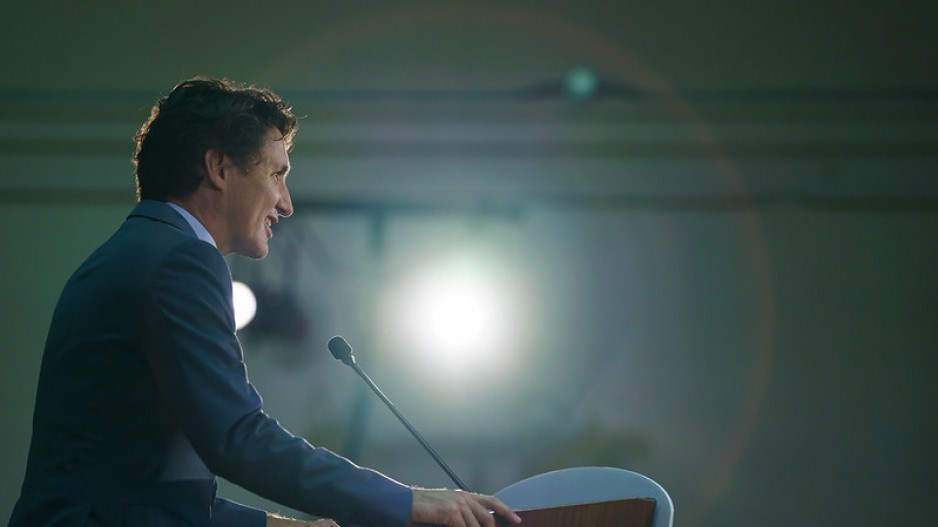B.C. New Democrats would never admit it out loud, but at this point they’d be secretly thrilled if the federal Liberal government stepped in and put the province’s decriminalization experiment out to political pasture, after months of negative consequences and publicity.
Which is why government officials were watching carefully for clues in the comments made by Prime Minister Justin Trudeau on the subject during a brief visit to Victoria late last week.
Unfortunately, they did not hear a prime minister willing to give the province an easy out.
Trudeau took pains to remind everyone that it was B.C.’s idea to implement the three-year decriminalization pilot project last January, and while Ottawa ultimately made the necessary legal exemptions for that to happen, it is the province that will signal the next steps on what to do.
“We’re going to continue working thoughtfully with B.C. as they manage the way this program unfolds,” he said to a crowd at the University of Victoria.
“This is a challenging situation that requires innovative responses, and figuring it out as we’re delivering these programs that are helping people is something we’re going to do in partnership [with B.C.]. It’s not an adversarial position.”
Darn, must have been the response inside the NDP.
It would have been worth the short-term negative hit to the B.C. government for Ottawa to take a more “adversarial position” if it meant not having to wear the increasingly politically radioactive decriminalization initiative through the next few months and into the election.
Yet Trudeau refused to budge on the issue during a one-on-one interview I conducted with him later Friday on CHEK News.
“B.C. came forward a few years ago and said we want to do a decriminalization pilot and we said, ‘OK, we’ll work with you on that,’ and we continue to be there to try to support them as they figure out how to make it work,” he said.
“I think it’s important to try and look at how we can try to solve this challenge.”
Not that there aren’t issues, the PM acknowledged.
“We were happy to support B.C. in doing this, but yeah there are real challenges and we’re going to continue to be there to work with them and try to solve it.”
B.C asked for decrim. B.C. asked for support. B.C. is facing challenges. B.C. has to figure out how to make it work. There’s no missing the message in the language from the prime minister.
I asked him if we’ve moved too far, too fast for the general public on the issues of decriminalization and safe supply.
“Too far, too fast?” Trudeau responded. “I think the fact is we needed to be ambitious in trying to solve this. It’s not just people in [the] Downtown Eastside or tent encampments that are dying of toxic drugs, it’s people in the suburbs, middle-class families.
“There is a huge challenge out there and our ability to save lives, our ability to use science and harm reduction and safe consumption as ways of trying to get through this, is the right path.”
For what it’s worth, Premier David Eby feels the same way, that B.C. needs to be ambitious in tackling the overdose crisis and that it’s unacceptable to put people with a medical condition like addiction in jail.
But both leaders are dealing with the unexpected consequence of those decisions, in the form of rising public drug use and street disorder.
The political situation worsened earlier this month when B.C. nurses said their safety is being compromised by all the drug smoke inside hospitals. And it turned into a crisis last week when top B.C. police chiefs warned decriminalization has made them helpless to respond to open drug use in most public places, such as a person smoking crack cocaine beside a family on a beach.
Simply charging forward as if nothing has happened is not politically tenable for either leader.
Yet the BC NDP is the one with the election on the horizon in October.
The federal Liberals seem content to let provincial New Democrats struggle through the political consequences of the program they created, and let the chips fall where they may.
Rob Shaw has spent more than 16 years covering B.C. politics, now reporting for CHEK News and writing for Glacier Media. He is the co-author of the national bestselling book A Matter of Confidence, host of the weekly podcast Political Capital, and a regular guest on CBC Radio.



